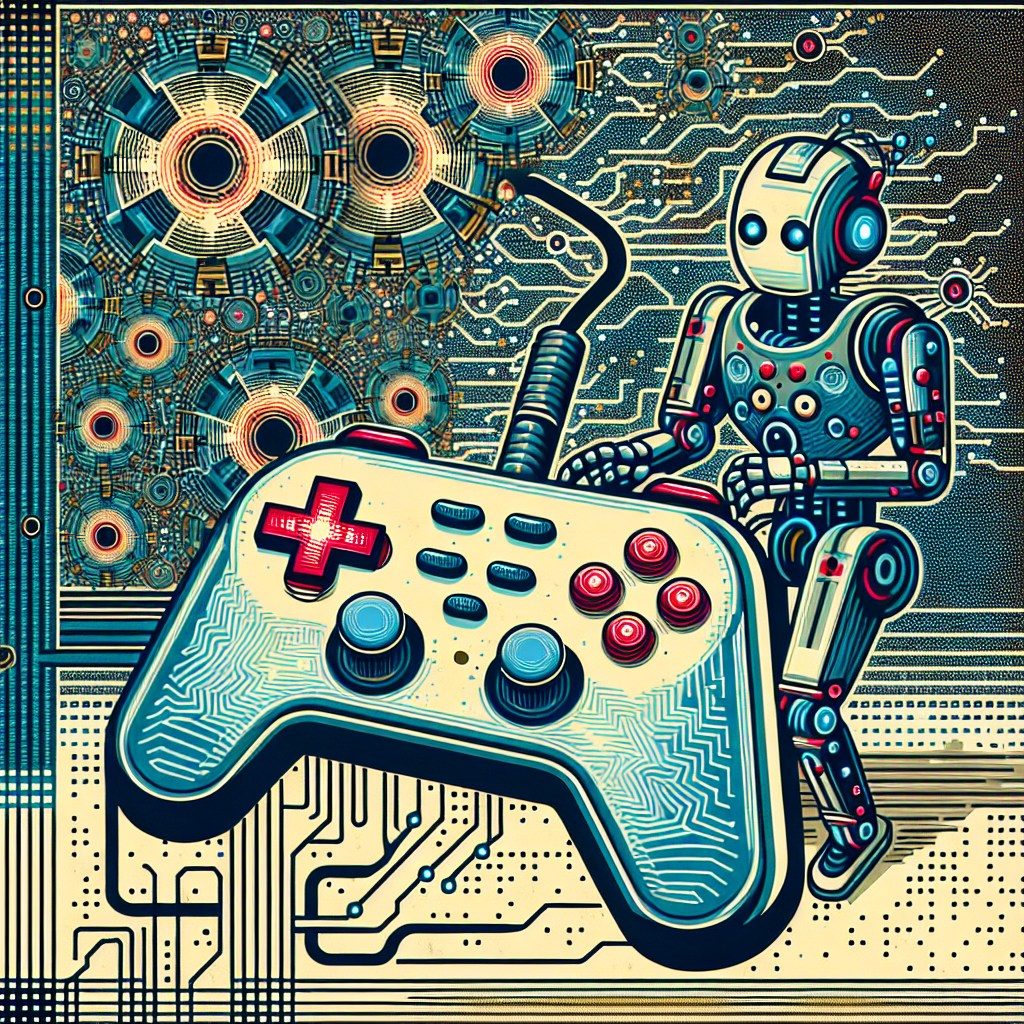In recent years, the gaming industry has seen a significant shift towards the integration of artificial intelligence (AI) in video games. AI has revolutionized many aspects of gaming, including game difficulty levels. AI algorithms are now being used to dynamically adjust the difficulty of games based on players’ skills and performance, creating a more personalized and engaging gaming experience. In this article, we will explore the influence of AI on game difficulty levels, how it is changing the way games are played, and its impact on the gaming community.
One of the most noticeable impacts of AI on game difficulty levels is the ability to provide a more adaptive and challenging gameplay experience. Traditional game difficulty settings, such as easy, medium, and hard, offer players a static level of challenge that remains the same throughout the game. However, with AI-powered systems, game difficulty can now be adjusted in real-time based on a player’s actions, performance, and skill level.
For example, AI algorithms can analyze a player’s gameplay patterns, such as how quickly they solve puzzles, how accurately they aim and shoot, and how often they die in combat. Based on this data, the AI can dynamically adjust the difficulty level by increasing the number of enemies, changing the behavior of opponents, or altering the layout of levels to provide a more challenging experience. This level of adaptability ensures that players are constantly engaged and challenged, leading to a more immersive gaming experience.
AI-powered difficulty levels also offer a more personalized gaming experience. By analyzing individual player data, AI algorithms can tailor the game’s difficulty to each player’s skill level and preferences. For example, a novice player may receive more hints and guidance, while a more experienced player may face tougher opponents and obstacles. This personalized approach ensures that players of all skill levels can enjoy the game at their own pace, without feeling overwhelmed or bored.
Moreover, AI-powered difficulty levels can help prevent player frustration and fatigue. In traditional games, players often reach a point where the difficulty level becomes too challenging, leading to frustration and a decrease in motivation to continue playing. AI algorithms can help alleviate this issue by dynamically adjusting the difficulty level to ensure that players are always challenged but not overwhelmed. This balance between challenge and reward keeps players engaged and motivated to progress through the game.
Another significant influence of AI on game difficulty levels is the potential for creating more realistic and intelligent opponents. In many games, AI-controlled enemies often follow predictable patterns and behaviors, making them relatively easy to defeat once players learn their strategies. With AI-powered systems, game developers can create opponents that adapt to players’ actions, learn from their mistakes, and make strategic decisions in real-time. This not only provides a more challenging gameplay experience but also adds a sense of unpredictability and excitement to the game.
AI-powered difficulty levels also have a positive impact on game replayability. By dynamically adjusting the difficulty based on players’ skills and performance, AI algorithms ensure that each playthrough is unique and engaging. This encourages players to revisit the game multiple times, trying out different strategies and approaches to overcome new challenges. The ability to provide a fresh and challenging experience each time players return to the game enhances its replay value and longevity.
Despite the numerous benefits of AI-powered game difficulty levels, there are also some potential drawbacks to consider. One concern is the risk of AI making the game too difficult or too easy for certain players. While AI algorithms strive to provide a balanced and challenging experience, there is always the possibility of misjudging a player’s skill level or preferences, resulting in frustration or boredom. Game developers must carefully fine-tune their AI systems to ensure that they accurately assess and adapt to players’ abilities.
Another potential issue is the impact of AI on the competitive aspect of gaming. In multiplayer games, AI-powered difficulty levels can give certain players an unfair advantage by adjusting the difficulty in their favor. This can create imbalance and dissatisfaction among players, particularly in competitive gaming environments. Game developers must strike a balance between providing a challenging experience for individual players and maintaining a fair and competitive playing field for all participants.
In conclusion, AI has had a profound influence on game difficulty levels, revolutionizing the way games are played and experienced. AI-powered systems offer a more adaptive, personalized, and challenging gameplay experience, enhancing player engagement, motivation, and immersion. While there are some potential drawbacks to consider, the overall impact of AI on game difficulty levels is overwhelmingly positive, leading to more dynamic, realistic, and enjoyable gaming experiences for players of all skill levels.
FAQs:
Q: How does AI adjust game difficulty levels in real-time?
A: AI algorithms analyze player data, such as gameplay patterns and performance, to dynamically adjust the difficulty level by increasing the number of enemies, changing opponent behavior, and altering level layouts.
Q: Can AI-powered difficulty levels provide a personalized gaming experience?
A: Yes, AI algorithms can tailor the game’s difficulty to each player’s skill level and preferences, ensuring that players of all skill levels can enjoy the game at their own pace.
Q: What are some potential drawbacks of AI-powered game difficulty levels?
A: Potential drawbacks include the risk of AI making the game too difficult or too easy for certain players, as well as the impact on the competitive aspect of gaming in multiplayer environments.
Q: How does AI enhance the replayability of games?
A: By dynamically adjusting the difficulty based on players’ skills and performance, AI algorithms ensure that each playthrough is unique and engaging, encouraging players to revisit the game multiple times.
Q: How can game developers fine-tune their AI systems to provide a balanced gameplay experience?
A: Game developers must carefully calibrate their AI algorithms to accurately assess and adapt to players’ abilities, ensuring a challenging yet fair gaming experience for all players.

